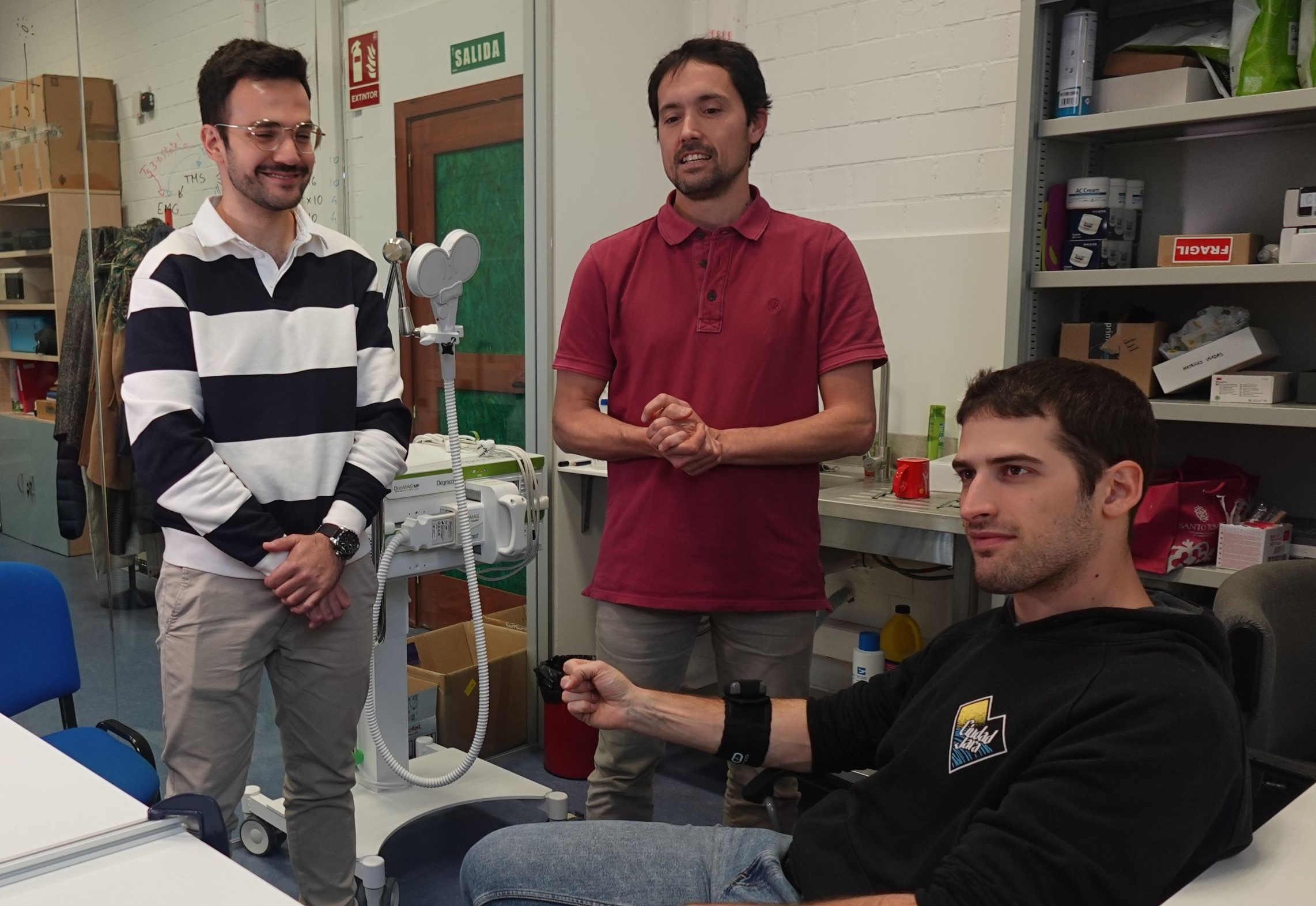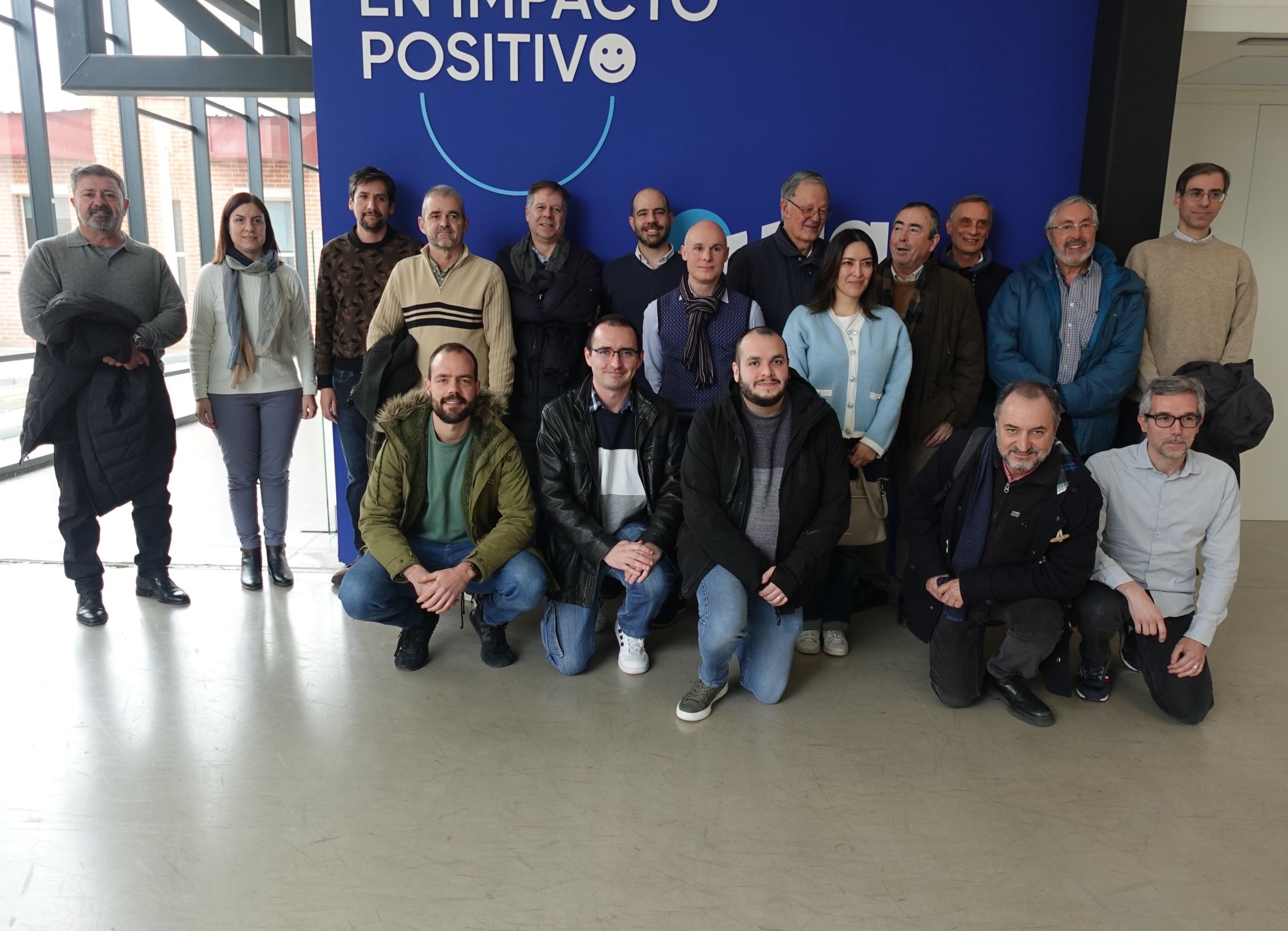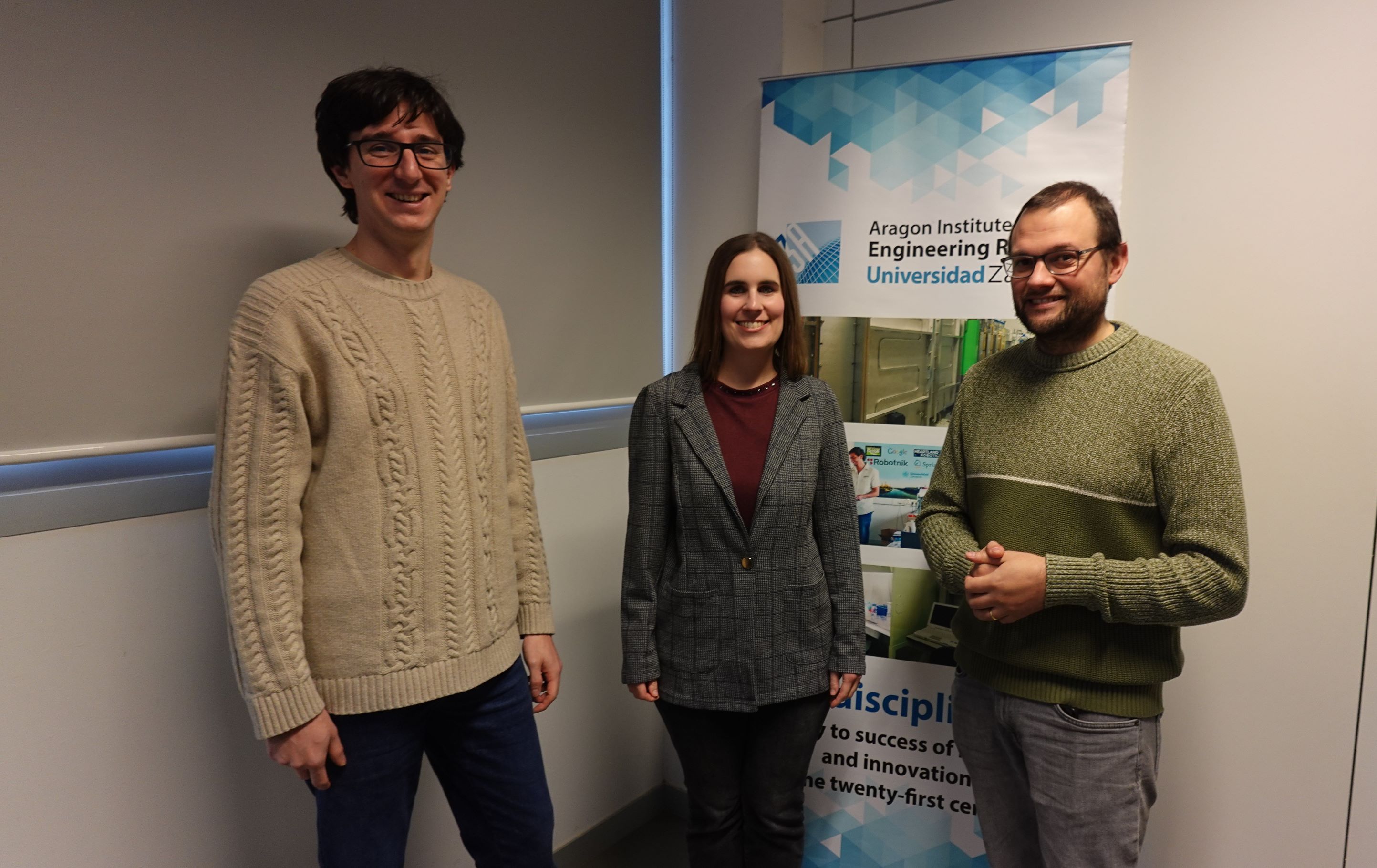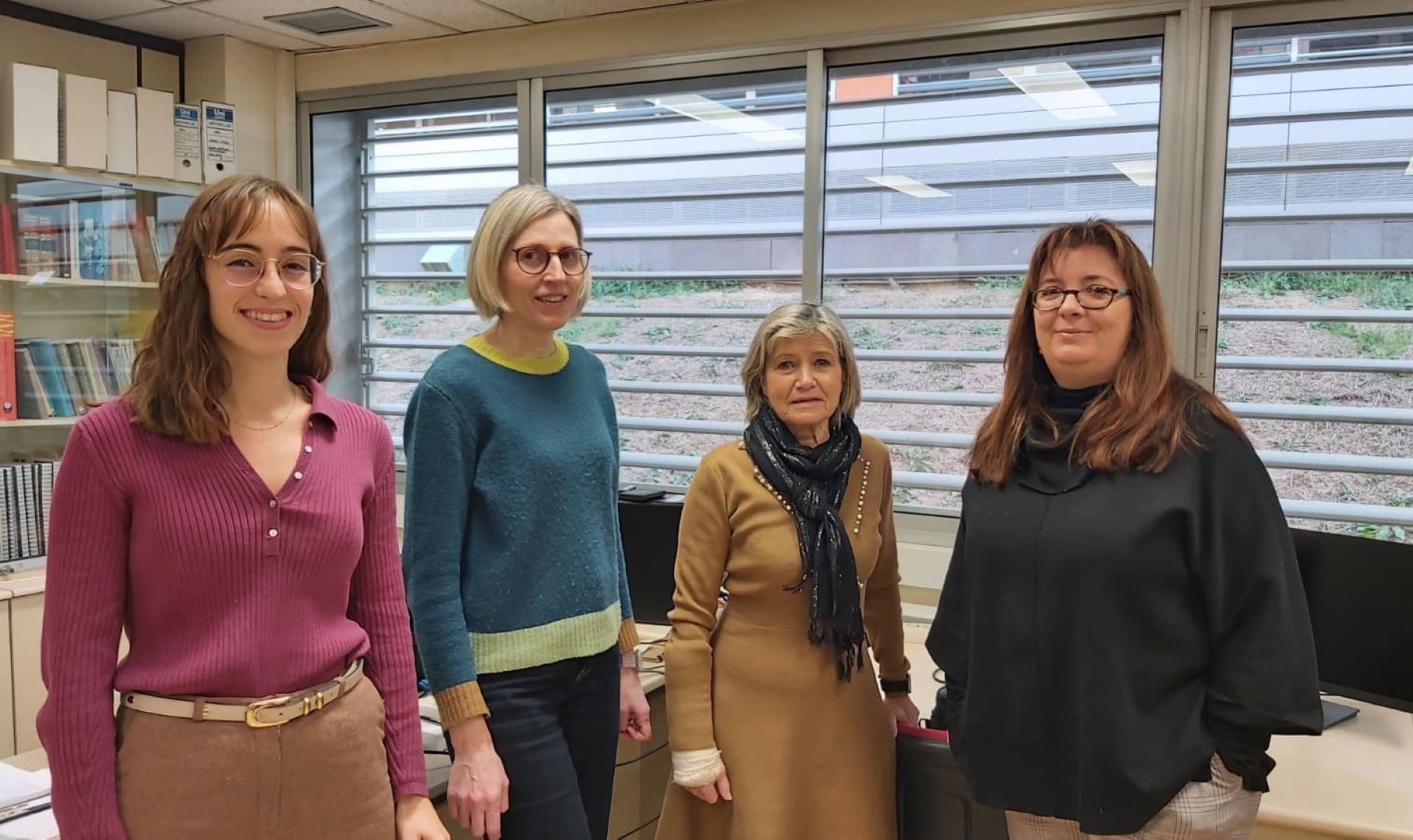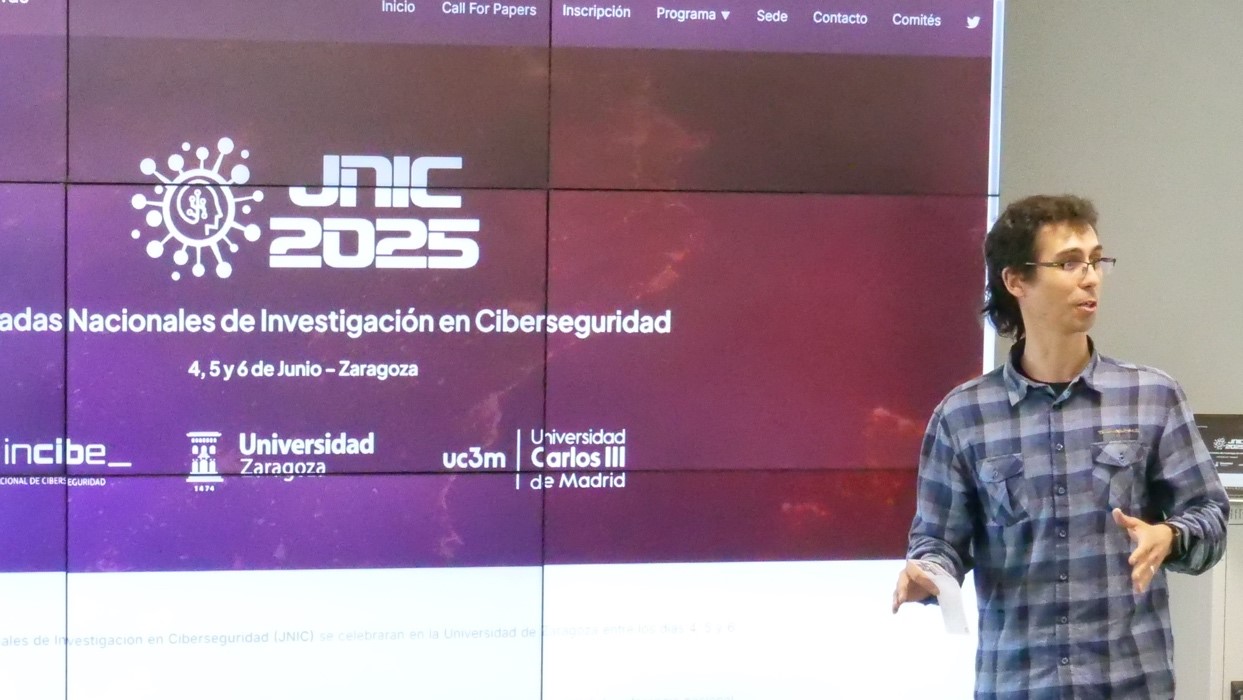
The University of Zaragoza will host the tenth edition of the National Conference on Cybersecurity Research (JNIC), which will be held from 4 to 6 June 2025 and is organised together with the Carlos III University of Madrid (UC3M) and the National Institute of Cybersecurity (INCIBE). The JNIC 2025 will bring together more than 200 professionals from 38 different institutions, including universities, research centres, public bodies and other entities, and its programme will be structured around three strategic axes: research, transfer and training.
The Jornadas Nacionales de Investigación en Ciberseguridad (JNIC) is a scientific conference that promotes the exchange of ideas, knowledge and experiences between the academic and research community, on the one hand, and professionals and companies in the sector, on the other. The event acts as a showcase for researchers to present the latest scientific advances in cybersecurity, while consolidating itself as a forum for debate to present innovative perspectives and approaches in the field. During the conference, both the RENIC Cybersecurity Awards and the prizes of its technical competition Capture The Flag (CTF) will be presented. The day will end with an institutional visit to the Aljafería Palace.
Ricardo J. Rodríguez, full professor at the University of Zaragoza, PhD in Systems Engineering, part of the RME-DisCo group of the I3A and one of the two presidents of the Organising Committee of the X JNIC: "Hosting the X JNIC strengthens the position of the University of Zaragoza as an institution with outstanding activity in cybersecurity research at a national level. It also projects the university as a space of attraction for young talent, technology companies and public institutions interested in the field of digital security. It also generates international visibility and facilitates new strategic collaborations. "
RENIC Awards
The researcher Daniel Uroz Hinarejos, from the University of Zaragoza, has been awarded the RENIC Prize for the Best Doctoral Thesis in Cybersecurity for his work entitled ‘Advances in Cybersecurity Incident Prevention and Analysis’, while Javier Parada Tallante, from the University of Malaga, has received the RENIC Prize for the Best Master's Thesis in Cybersecurity for his proposal ‘TANUKIPOT: Honeypot based on digital twins for critical infrastructures’.
Both awards, granted by the National Network of Excellence in Cybersecurity Research (RENIC), recognise research excellence in the field of cybersecurity, rewarding the originality, applicability and relevance of those postgraduate academic works with the greatest potential for impact.
Programme
The official opening of the event will be held on Wednesday 4 June, with the first keynote address by Oracle Software Assurance researcher Cristina Cifuentes. During the rest of the day, several sessions will be held, including one focused on privacy, regulation and transparency, another on the use of artificial intelligence in cybersecurity, as well as two spaces dedicated to the transfer of knowledge from the university to the business environment. Academic posters of already published works will be on display. The day will conclude with a guided tour of the city of Zaragoza.
On Thursday 5 June, the sessions will resume with a session dedicated to cybersecurity in connected environments and the Internet of Things. Afterwards, David Sancho, Trend Micro's threat research specialist, will give the second main conference of the congress. This will be followed by a panel on security in strategic sectors, another on classical and post-quantum cryptography and a final one focused on advanced threat detection. New posters will also be presented during the day. At the end of the day, the RENIC Awards will be presented to the best Master's theses and doctoral dissertations in cybersecurity.
The sessions on 6 June will begin with a session on digital defence platforms and frameworks, followed by two blocks dedicated to work related to cybersecurity training. Awareness-raising strategies and the emergence of new lines of research in the field of cybersecurity will also be discussed. The event will end with the presentation of the prizes for the Capture The Flag (CTF) technical competition and a visit to the Aljafería Palace.
In this link published works can be consulted
Keynote I: Real-World Vulnerability Detection at Scale and AI Assisted Patch Generation
Cristina Cifuentes will present Oracle Parfait, a static code analysis tool aimed at detecting vulnerabilities in languages such as Java, C, C++, Go, Python and Swift. He will address the principles that have guided its development, such as accuracy, scalability and integration into automated workflows. Cifuentes will explain the technical challenges faced when designing a tool of these characteristics and will show examples of real vulnerabilities identified. He will also introduce the current lines of research at Oracle aimed at the automatic generation of patches using artificial intelligence-assisted analysis techniques.
Keynote lecture II: How do the attackers attack in 2025?
David Sancho (Trendmicro) will explain the current threat landscape with an emphasis on new methodologies employed by attackers, especially those incorporating artificial intelligence. He will analyse the recent evolution of ransomware and detail the main emerging AI-driven threats, including the generation of deepfakes and attacks targeting the technical infrastructure of artificial intelligence systems.
¿Por qué la Universidad de Zaragoza acoge las X JNIC?
Each year a call for nominations for the following year's venue is published. The JNIC Steering Committee then meets to choose the next host. The RME-DisCo group of the University of Zaragoza tried for 2024, but did not succeed. They tried for 2025 and succeeded; the bid is a joint bid with Universidad Carlos III de Madrid.
CTF
The seventh edition of the Capture The Flag (CTF) JNIC, organised by the ViewnextUEX Chair on ‘Security and Audit of Software Systems’, took place virtually between 23 and 25 May 2025. The registration period to participate was open until 23 May, and the competition was aimed at pre-university students, university students and recent graduates residing in Spain. The teams, made up of a maximum of three members, competed in technical tests in various areas of cybersecurity, and were eligible for technological prizes worth 1,500, 1,000 and 500 euros for the top three finishers, respectively. The winning team received a travel bag to attend the conference and will be awarded at the closing ceremony of the event on 6 June.
10th anniversary
The National Cybersecurity Research Conference has been held annually since 2015. After its inaugural edition in León, the meeting has travelled to other cities such as Granada, Madrid, San Sebastián, Cáceres, Bilbao, Vigo and Seville, in addition to a virtual edition organised from Castilla-La Mancha during the pandemic derived from COVID-19. Zaragoza is now hosting this tenth edition with the aim of consolidating the link between research, technological innovation and digital security.
About INCIBE
The National Cybersecurity Institute is an entity dependent on the Ministry for Digital Transformation and Public Function through the State Secretariat for Telecommunications and Digital Infrastructures.
Digital Transformation and Public Function through the Secretary of State for Telecommunications and Digital Infrastructure, consolidated as a reference entity for the development of cybersecurity and digital trust of citizens and companies. It is also a driver of social transformation and an opportunity for innovation, fostering R&D&I and talent.
About RME-DisCo
The Distributed Computing Research Group (DisCo) of the University of Zaragoza is attached to the Department of Computer Science and Systems Engineering (DIIS) of the School of Engineering and Architecture (EINA) and is part of the Engineering Research Institute of Aragon (I3A). Recognised as a reference group by the Government of Aragon (Reference T21_23R), it is made up of teaching staff with consolidated research activity and trainee staff.
Within DisCo, it integrates RME (ReverseaME), a unit focused on the study of software and system security, with special attention to binary analysis, reverse engineering, cybersecurity and vulnerability detection. The team actively participates in applied research projects and in the development of technical frameworks aimed at regulatory compliance in digital environments.
In the framework of the X Jornadas Nacionales de Investigación en Ciberseguridad (JNIC), several members of RME-DisCo participate in the scientific and technical organisation of the event, as well as in the evaluation committees, reflecting the group's continued involvement in this initiative since its first editions.
Image Caption: Ricardo J. Rodríguez presents the JNIC 2025 in Walqa
